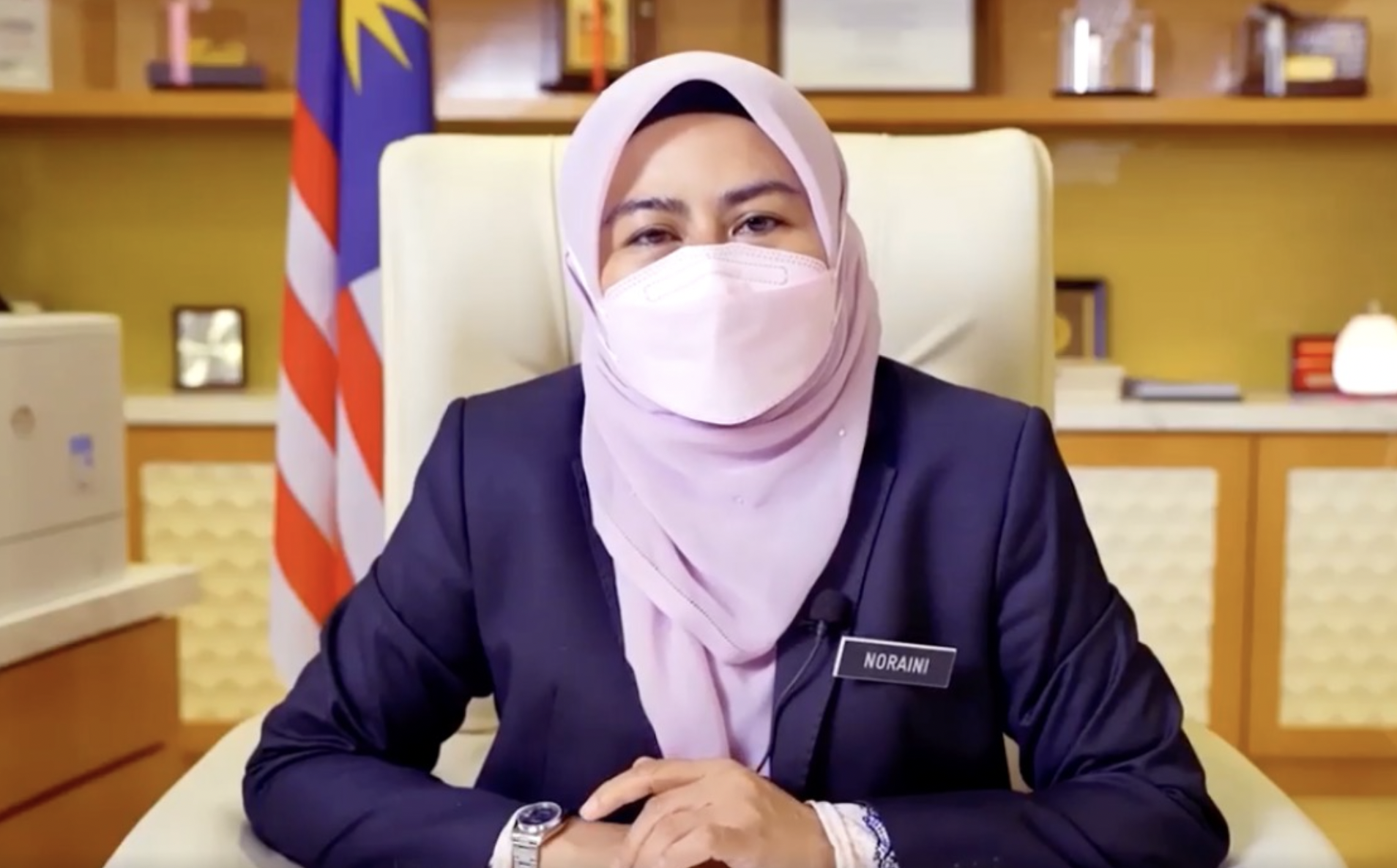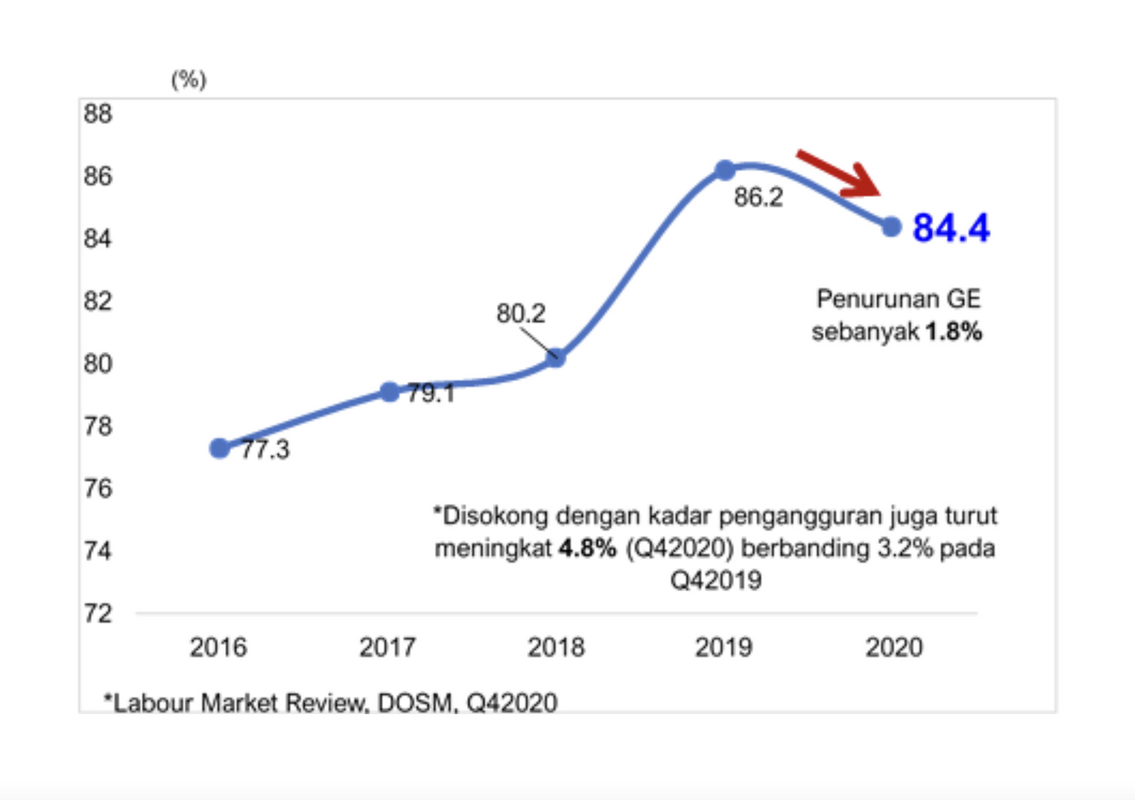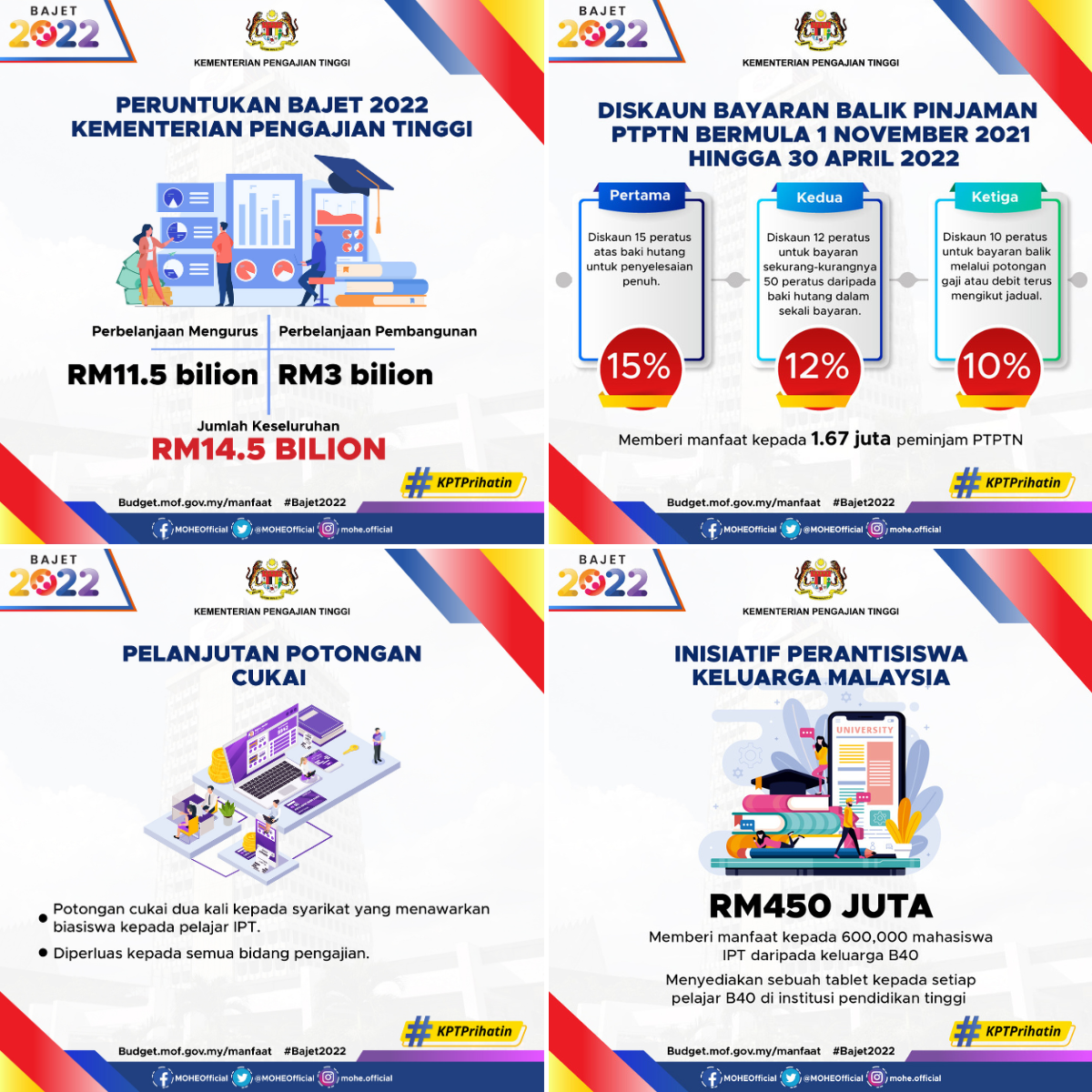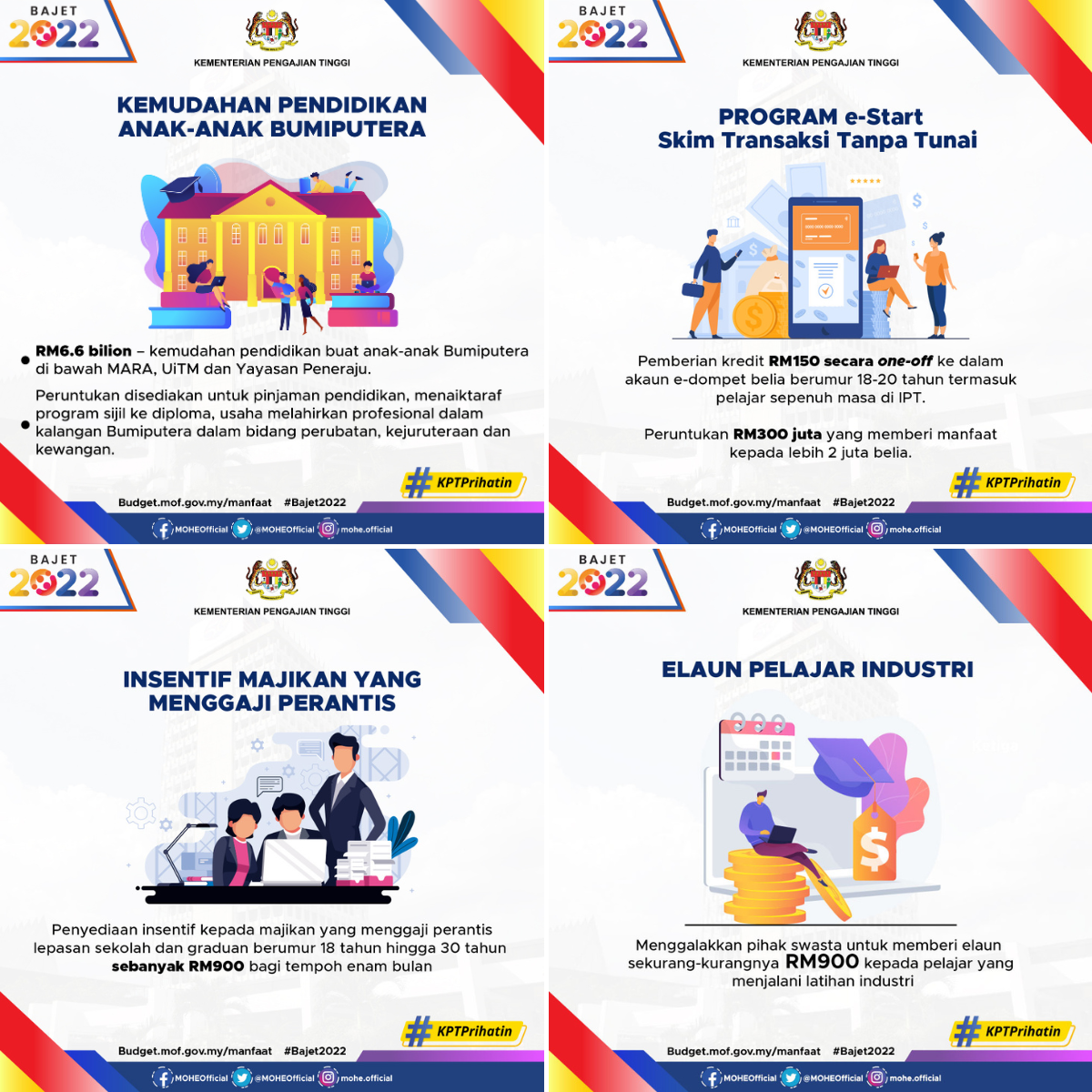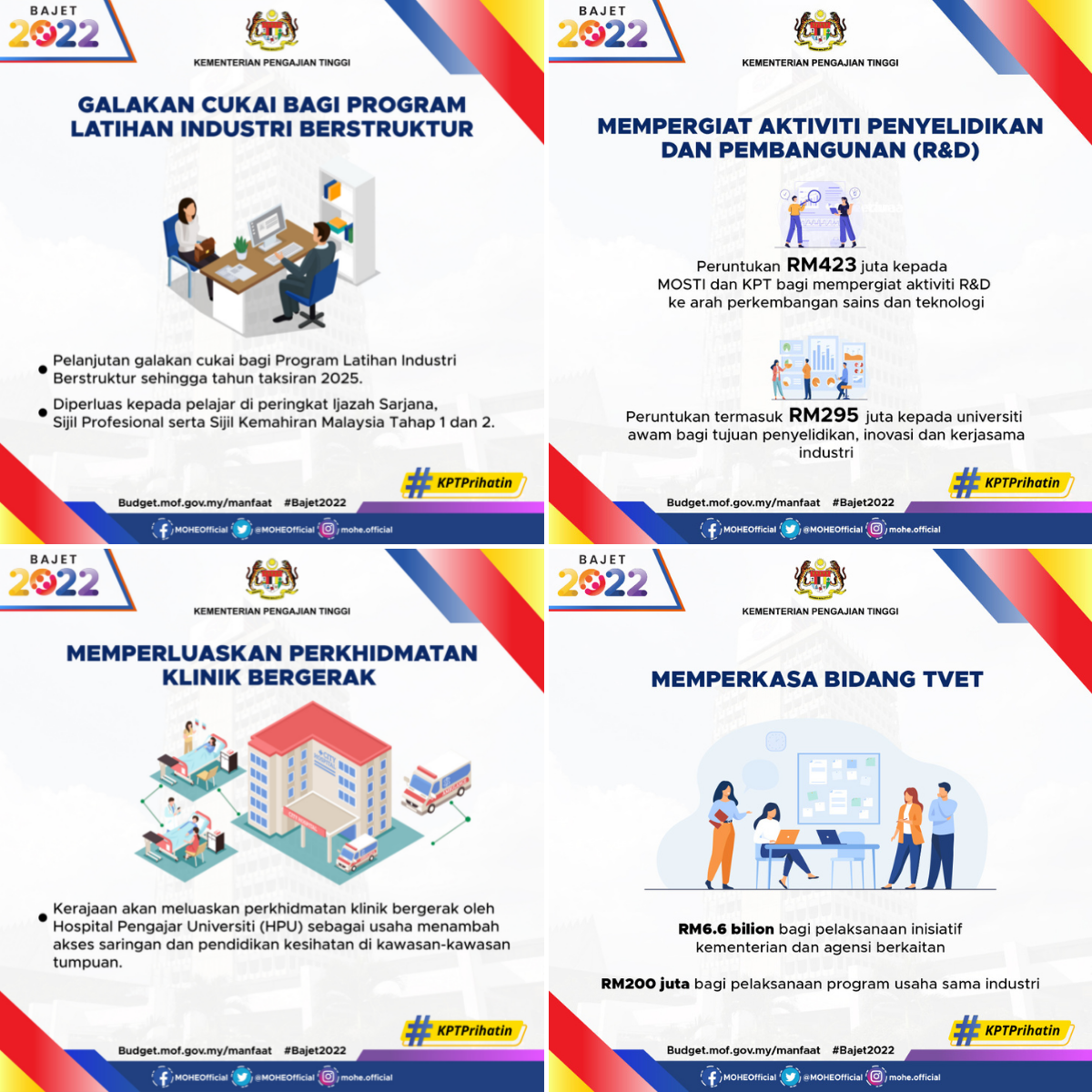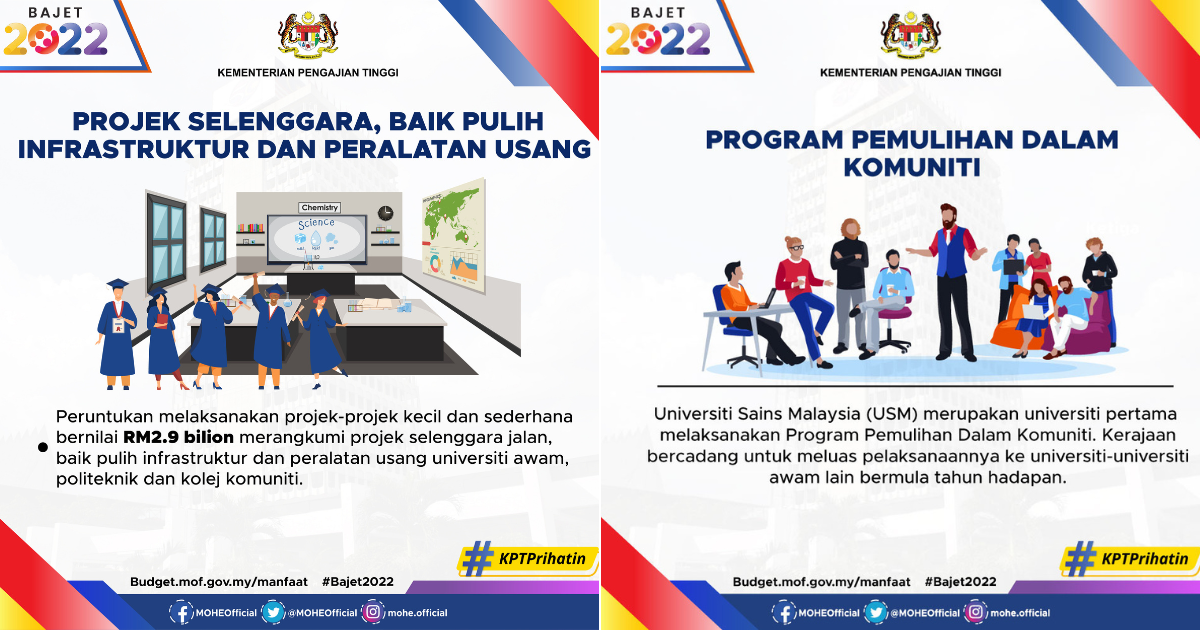The Ministry Of Higher Education Wants To Boost Graduate Employability. Here's How
From easy-to-use job portals to #Bajet2022 initiatives, the ministry has many plans in the pipeline for students.
One of the current priorities for the Ministry of Higher Education (MOHE) is to improve the education system, while producing more holistic and employable graduates
Higher Education Minister Datuk Seri Dr Noraini Ahmad said that they have outlined a five-year plan with four main strategies aimed at producing better graduates that are ready for the workforce.
These strategies revolve around reinforcing talent, expanding careers of graduates, enhancing teaching and learning, and strengthening industry ties.
For example, the ministry has partnered with Social Security Organisation (SOCSO) to provide graduates access to national employment portal MYFutureJobs. Besides that, TalentCorp is offering its Nurturing Expert Talent module to help with career profiling.
These are timely initiatives, as a study by MOHE showed that the graduate employability rate decreased by 1.8% in 2020
The 2020 Graduate Tracking Study found that Malaysian graduates had a marketability rate of 84.4%, compared to 86.2% in the previous year. In other words, up to 40,550 graduates were not able to secure a job within six months of graduating.
To help make it easier for graduates to find out about job offers and other opportunities, the government introduced Graduates Reference Hub for Employment and Training (GREaT) in September 2020. The one-stop portal now even includes a feature to automatically match unemployed graduates with suitable job vacancies found in their database.
Nevertheless, a positive sign is that polytechnic graduates are in high demand, with a marketability rate of over 90% for five years in a row
Despite the pandemic, polytechnic graduates still had a 91.2% marketability rate in 2020.
That is why the Ministry of Higher Education will continue to look at the betterment of the Technical and Vocational Education and Training (TVET) programme as a whole, along with programme accreditation and recognition at the international level.
Following the tabling of #Bajet2022, the government announced that MOHE has been allocated RM14.5 billion, which will help education agencies as well as students. Here's how:
2. From 1 November 2021 to 30 April 2022, those who are repaying their National Higher Education Fund Corporation (PTPTN) loans in full will get a 15% discount. Those who are repaying at least half of their loan balance will get a 12% discount. Also, if you repay your PTPTN loans through salary cuts or scheduled direct debit, you'll be given a 10% discount.
3. Companies that offer scholarships to students will receive double tax deduction, and this policy is now applicable to all fields of study.
4. An estimated 600,000 students from B40 families will receive free tablets, with an allocation of RM450 million for this programme.
6. Over two million youths will benefit from RM150 e-wallet credit, under the government's eStart programme to foster a culture of cashless transactions. A total of RM300 million has been allocated for this initiative.
7. Employers who hire school leavers and graduates aged 18 to 30 years old will be provided a monthly incentive of RM900. This amount will be given monthly for each hire for a period of six months.
8. The government also called for the private sector to offer an allowance of RM900 to students undergoing industrial training.
9. Tax incentives for the Structured Industrial Training Programme will be extended until the year of assessment 2025, applicable for students at different levels, including Master's Degree, Professional Certificate, and Malaysian Skills Certificate Level 1 and 2.
10. RM423 million has been allocated for the Ministry of Science, Technology, and Innovation (MOST) and MOHE to enhance R&D activities. This includes RM295 million for public universities to play a role in research and innovation.
11. In an effort to increase access to screening and health education, mobile clinic services will be expanded to university teaching hospitals. The capacity of public health service facilities will also be increased, with RM4 billion allocated for the implementation of vaccination programmes as well as other efforts to address COVID-19, including university teaching hospitals.
12. RM6.6 billion will be allocated to the TVET industry, with an additional RM200 million for joint venture programmes with the industry.
14. Pioneered by Universiti Sains Malaysia (USM) in Penang, the government will be implementing community-based rehabilitation programmes at more universities starting next year.
In addition to these initiatives, daycare facilities will be offered at public universities to support working mothers. The Malaysian Research and Education Network (MYREN) will also get a RM50 million network upgrade, from 500Mbps to 10Gbps.
To find out more about the government's latest initiatives, visit the Ministry of Higher Education's website, Facebook, or Instagram
